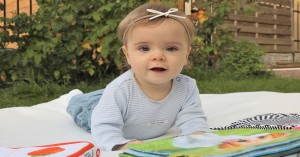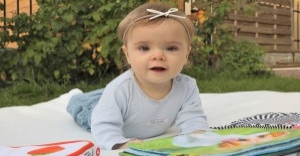Based on the AEDC 2024 findings, here are 5 targeted strategies services can implement to respond thoughtfully and effectively to rising developmental vulnerabilities.
1. Prioritise Emotional Maturity and Social Competence
- Daily Emotion Check-ins: Integrate morning routines where children name or gesture how they feel.
- Co-regulation Spaces: Create calm corners with sensory tools and visuals to help children self-regulate.
- Intentional Social Skills Coaching: Use role play, puppetry, and storybooks to model social problem-solving.
2. Strengthen Foundational Routines and Predictability
- Visual Schedules: Support transitions and reduce anxiety with clear, pictorial timetables.
- Smaller Group Times: Provide targeted attention in small groups to build relationships and communication skills.
- Repetitive and Rhythmic Experiences: Songs, chants, and movement that engage motor pathways also boost regulation.
3. Deepen Family Engagement
- Play-at-Home Toolkits: Offer simple activities that mirror in-center learning, especially around SEL (social-emotional learning).
- Family Conversations: Normalise discussions around vulnerability and share early signs in a strengths-based way.
- Parent Education Nights: Host sessions unpacking AEDC data and how families can support development at home.
4. Focus on Language-Rich Environments
- Everyday Conversations: Use descriptive language during routines and name children’s actions to expand vocabulary.
- Story Extensions: Build language and cognitive skills with sequencing games, story re-enactments, and literacy props.
- Communication Props: Visual communication boards for non-verbal or hesitant communicators.
5. Empower Educators and Teams
- Professional Reflection Circles: Use AEDC data to guide critical reflection questions like "How are we embedding emotional support daily?"
- Well-being Check-ins: Regular team check-ins or peer support systems to buffer burnout and foster resilience.
- Tailored PD: Training in trauma-informed care, emotional coaching, or inclusion practices.
Together, these strategies form a compassionate and responsive blueprint for supporting children through today’s growing developmental complexities.
By anchoring our practices in emotional safety, rich communication, and authentic relationships, we not only respond to the data—we honour each child’s potential. As early childhood educators, our role has never been more vital, nor our impact more profound. Let’s continue to lead with insight, empathy, and innovation. The children in our care deserve nothing less.
Further Reading
Rising Vulnerabilities: What the 2024 AEDC Data Means for Early Childhood Education







 In Norway and most other Scandinavian countries, children nap in the outdoors. According, to research outdoor sleeping not only promotes better daytime sleeping, but it
In Norway and most other Scandinavian countries, children nap in the outdoors. According, to research outdoor sleeping not only promotes better daytime sleeping, but it The following article lists 30 art and craft descriptions and links to the EYLF. These can be used as a blurb, during observations, used for
The following article lists 30 art and craft descriptions and links to the EYLF. These can be used as a blurb, during observations, used for Feel Good Feb is dedicated to saying thanks, expressing gratitude, and promoting good deeds and random acts of kindness.
Feel Good Feb is dedicated to saying thanks, expressing gratitude, and promoting good deeds and random acts of kindness.
 From the earliest months of life, babies thrive when given opportunities to experience the outdoors. Nature is not just a backdrop for play—it is a
From the earliest months of life, babies thrive when given opportunities to experience the outdoors. Nature is not just a backdrop for play—it is a Across the early childhood education and care sector, educators are sounding the alarm: current staffing ratios are insufficient to deliver safe, meaningful, and developmentally appropriate
Across the early childhood education and care sector, educators are sounding the alarm: current staffing ratios are insufficient to deliver safe, meaningful, and developmentally appropriate Thanks to the new National Model Code and upcoming regulatory changes under the National Quality Framework (NQF), early childhood services across Australia must now implement
Thanks to the new National Model Code and upcoming regulatory changes under the National Quality Framework (NQF), early childhood services across Australia must now implement In the quiet hum of a weekday morning, something felt off. Preschool doors opened, but classrooms remained silent. No greetings. No redirection. No educators. And
In the quiet hum of a weekday morning, something felt off. Preschool doors opened, but classrooms remained silent. No greetings. No redirection. No educators. And A: In early childhood education and care (ECEC) settings across Australia, mobile phone use by educators is now subject to strict national reforms aimed at
A: In early childhood education and care (ECEC) settings across Australia, mobile phone use by educators is now subject to strict national reforms aimed at The end of the year is a busy and emotional time in early childhood services. Many services close for a short period over Christmas, and
The end of the year is a busy and emotional time in early childhood services. Many services close for a short period over Christmas, and In early childhood education and care, child safety is not just a number—it’s a practice. While educator-to-child ratios are essential, they are only one part
In early childhood education and care, child safety is not just a number—it’s a practice. While educator-to-child ratios are essential, they are only one part


